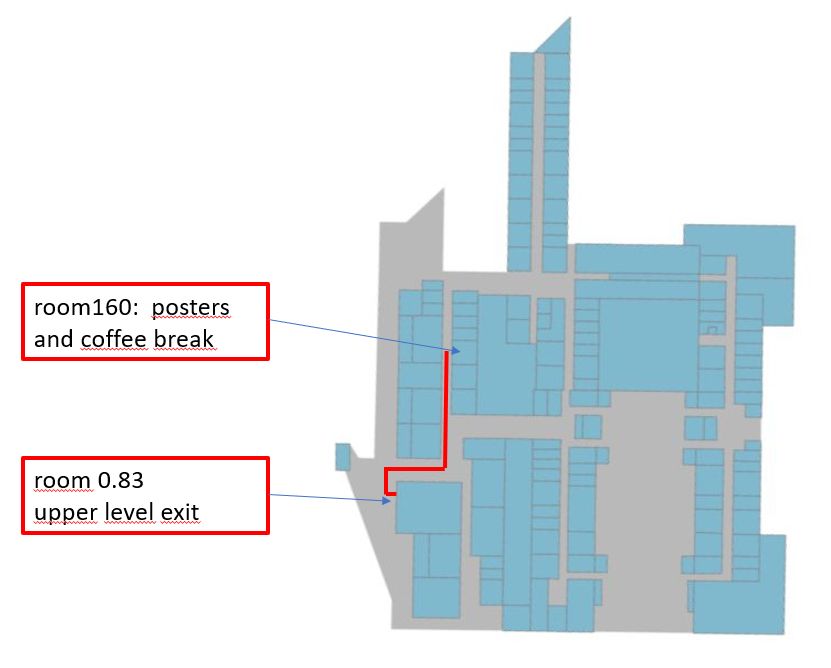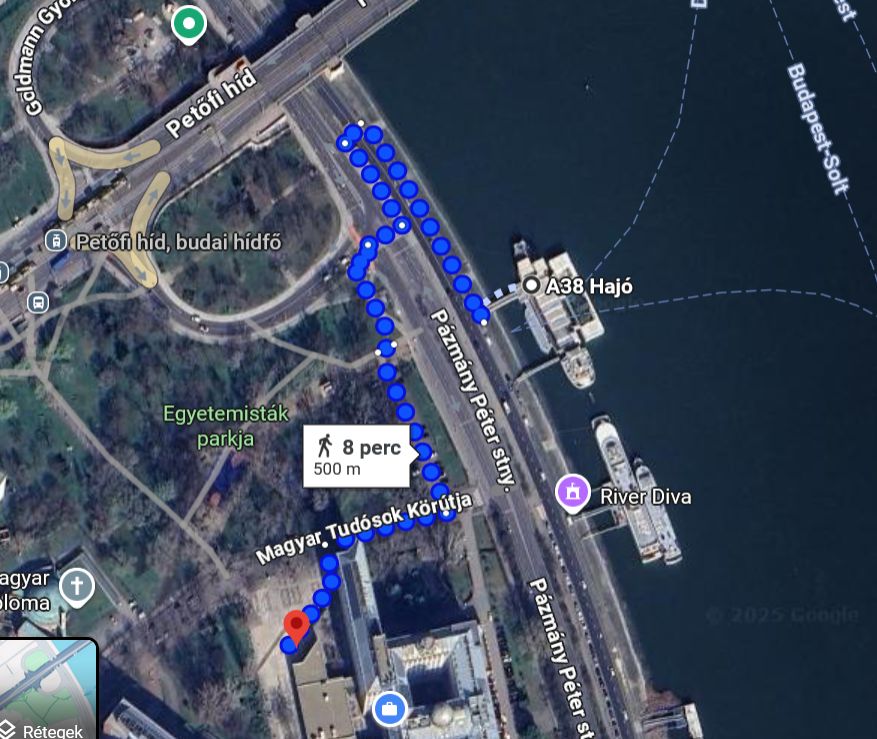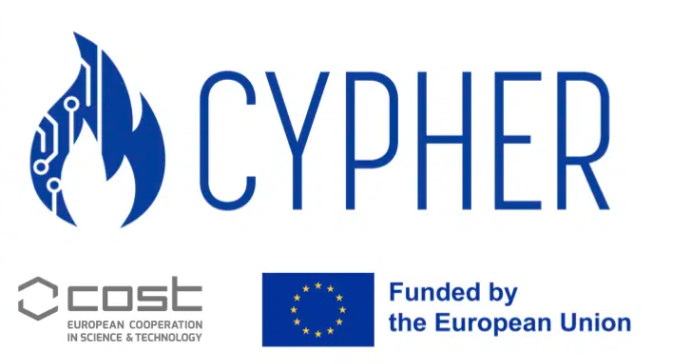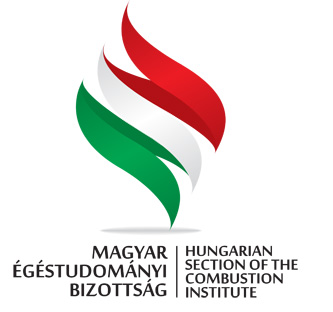Program of the Training School
Lectures
Computer sessions
Poster session
Lunch
Social activity
Schedule
| |
September 2 Tuesday |
September 3 Wednesday |
September 4 Thursday |
September 5 Friday |
| 8:00-8:30 |
|
|||
| 8:30-9:30 |
||||
| 9:30-9:40 |
|
|
|
|
| 9:40-10:40 | ||||
| 10:40-11:10 |
|
|
|
|
| 11:10-12:10 | ||||
| 12:10-12:20 |
|
|
|
|
| 12:20-13:20 | ||||
| 13:20-14:50 |
|
|
|
|
| 14:50-15:50 |
|
|||
| 15:50-16:20 |
|
|
||
| 16:20-17:20 |
|
|||
| 18:00-22:00 |
|
|
Lectures
Tuesday 1-1 (Turányi)
Reaction kinetics basics for combustion simulations; local
sensitivity analysis
Tuesday 1-2 (Turányi)
Uncertainty of data and parameters
(uncertainty of combustion measurements, rate coefficients,
Arrhenius parameters and thermodynamic data)
Tuesday 1-3 (Tomlin)
Chemical kinetics data
(sources of data, conventional and automatic mechanism generation
(AMG), use of machine learning in AMG and rate constant estimation)
Tuesday 1-4 (Szanthoffer)
Validation of detailed combustion mechanisms
Wednesday 2-1 (Tomlin)
Global uncertainty analysis 1
(screening methods; Monte Carlo methods and structured sampling
approaches using Latin hypercube and low discrepancy sampling
sampling)
Wednesday 2-2 (Tomlin)
Global uncertainty analysis 2
(variance based sensitivity indices, HDMR, polynomial chaos methods)
Wednesday 2-3 (Nagy)
Optimization of detailed combustion mechanisms
Wednesday 2-4 (Stagni)
Curve matching, Surface matching optimization
Thursday 3-1 (Nagy)
Reduction of reaction mechanisms 1
(creation of skeleton mechanisms)
Thursday 3-2 (Goussis)
Reduction of reaction mechanisms 3
(time scale analysis, methods based on time-scale separation)
Thursday 3-3 (Goussis)
Reduction of reaction mechanisms 4
(methods based on time-scale separation: CSP, ILDM, ISAT, REDIM)
Thursday 3-4 (Tomlin)
Reduction of reaction mechanisms 2
(fitted models, in-situ tabulation and species lumping)
Hands-on computer sessions
Please bring your Windows or Linux laptop with all codes preinstalled.For those who encounter difficulties, we will hold a dedicated installation session on Tuesday from 16:20 to 17:20
The suggested codes include MATLAB, Fortran and C++ source codes, Windows and Linux executable files (see the table below).
Wednesday P2-1 (Papp)
CombustionData and ReSpecTh web sites
example files
Wednesday P2-2 (Valkó)
k-evaluation web page
Thursday P3-1 (Tomlin)
High Dimensional Model Representation
GUI-HDMR code
Thursday P3-2 (Dinelli)
POLIMI codes: OpenSMOKE++, OptiSMOKE++
Friday P4-1 (Nagy)
Skeletal mechanism reduction in practice
Friday P4-2 (Szanthoffer)
Using the Optima++ code for mechanism validation
example files
Friday P4-3 (Nagy)
Using the Optima++ code for mechanism optimization
example files
Friday P4-4 (Papp)
Reaction pathway visualization with FluxViewer++
example files
Master table of the codes:
| name | session | format | available from |
|---|---|---|---|
| CombustionData | Wed P2-1 (Papp) | web site | https://combustiondata.elte.hu |
| ReSpecTh | Wed P2-1 (Papp) | web site | https://respecth.hu |
| k-evaluation | Wed P2-2 (Valkó) | web site | https://k-evaluation.elte.hu |
| GUI-HDMR | Thu P3-1 (Tomlin) | MATLAB executable | https://respecth.hu |
| OpenSMOKE++ | Thu P3-2 (Dinelli) | executable (Windows and MacOs) |
Link to the repository |
| SEM | Fri P4-1 (Nagy) | executable (Windows and Linux) |
https://respecth.hu |
| Optima++ | Fri P4-2 (Szanthoffer) Fri P4-3 (Nagy) |
executable (Windows and Linux) |
https://respecth.hu |
| FluxViewer++ | Fri P4-4 (Papp) | executable (Windows and Linux) |
https://respecth.hu |
Poster session

The posters will be on display throughout the week in room 160 and can be read during the coffee breaks. Additionally, a dedicated poster session will take place on Tuesday afternoon, from 14:50 to 16:20. We expect A0 posters in portrait orientation.
-
Comprehensive testing of recent detailed combustion mechanisms against NH3 and NH3/H2 experimental data1 Institute of Chemistry, ELTE Eötvös Loránd University, Budapest, Hungary2 Hevesy György PhD School of Chemistry, ELTE Eötvös Loránd University, Budapest, Hungary3 Institute of Materials and Environmental Chemistry, HUN-REN Research Centre for Natural Sciences, Budapest, Hungary
-
A new web page for the easy creation and modification of RKD format combustion data files: combustiondata.elte.hu1 Institute of Chemistry, ELTE Eötvös Loránd University, Budapest, Hungary2 Hevesy György PhD School of Chemistry, ELTE Eötvös Loránd University, Budapest, Hungary
-
Theoretical and experimental study of oxidation using synchrotron-based photoelectron spectroscopy and quantum chemical calculations1 Université de Lorraine, CNRS, LRGP, F-54001 Nancy, France2 Université de Rennes, CNRS, IPR, F-35000 Rennes, France
-
A compact kinetic reaction mechanism for the oxidation of NH3/H2 mixtures1 College of Physical Sciences and Engineering, Cardiff University, Cardiff, CF24 3AA, United Kingdom2 Engineering Technical College of Al-Najaf, Al-Furat Al-Awsat Technical University, Najaf, 31001, Iraq3 Institute of Thermal Engineering, Poznan University of Technology, 60-965 Poznan, Poland4 Institute of Chemistry, ELTE Eötvös Loránd University, Budapest, 1117, Hungary5 Hevesy György PhD School of Chemistry, ELTE Eötvös Loránd University, Budapest, 1117, Hungary6 Institute of Materials and Environmental Chemistry, HUN-REN Research Centre for Natural Sciences, Budapest, 1117, Hungary
-
Safety parameters of 2-propanol – air mixtures1 Ilie Murgulescu Institute of Physical Chemistry, Romanian Academy, 202 Spl. Independentei, 060021 Bucharest, Romania2 Invited researcher, Physikalisch-Technische Bundesanstalt (PTB), 100 Bundesallee, 38116 Braunschweig, Germany3 Physikalisch-Technische Bundesanstalt (PTB), 100 Bundesallee, 38116 Braunschweig, Germany
-
A Critical Review of Cp Calculations within the Fluidized Bed of Cement Rotary Kilns1 Laboratory of Advanced Renewable Technologies & Environmental Materials in Integrated Systems, Chemical Process & Energy Resources Institute, Centre for Research & Technology Hellas, 57001, Greece2 Laboratory of Chemical Process and Plant Design, Department of Chemical Engineering, Aristotle University of Thessaloniki, 54124, Greece3 Laboratory of Applied Thermodynamics, Department of Mechanical Engineering, Aristotle University of Thessaloniki, 54124, Greece4 TITAN Cement S.A., 11143, Greece
-
Experimental Study of NOx Emissions in Hydrogen-Based Coal Replacement for Rotary Kilns1 Chalmers University of Technology and LKAB
-
Determination of the Flameless Combustion Regime of a Dimethyl Ether (DME) and Syngas Mixture1 Laboratoire CMASMTF, FSSA, Université Oum El Bouaghi, Algerie
-
Full-Spectrum k-distribution Weighted Sum of Gray Gases Model for Air and Oxyfuel Combustion of Hydrogen-Hydrocarbon Blends1 Department for Industrial Furnaces and Heat Engineering, RWTH Aachen University
-
Threshold Behavior of NH3/H2 Ignition Delay Time1 Eindhoven University of Technology2 University of Groningen3 DNV GL Oil & Gas
-
MILD combustion of ammonia/hydrogen mixture in adiabatic Well Stirred Reactor (WSR).1 CMASMTF Laboratory, FSSA, University Oum El Bouaghi, Algeria
-
A comprehensive reaction mechanism for the combustion of gasoline with C1-C5 alcohol blends and the formation of large polycyclic aromatic hydrocarbons (PAHs)1 Department of Chemical Engineering, Indian Institute of Technology Delhi, New Delhi 110016, India
-
Fast and Accurate Estimation of Kinetic Parameters for the Unimolecular Decomposition of Cyclic Ethers1 Laboratory for Chemical Technology - Ghent University
-
Bayesian Sequential Experimental Design for Combustion Kinetics Models: A Surrogate-Assisted Nonlinear Framework with Improved Information Gain1 Center for Combustion Energy and Department of Energy and Power Engineering, Tsinghua University, Beijing 100084, China2 Department of Mechanical and Aerospace Engineering, Princeton University, Princeton, New Jersey 08544, USA
-
Electromagnetic Interactions on Hydrogen Flames at the Atomistic Scale1 Imperial College London
-
A Novel Deterministic Chemical Kinetic Mechanism Optimisation Technique: A Case Study1 Institute for Advanced Automotive Propulsion Systems (IAAPS), University of Bath, Bath, UK
-
Implementation and assessment of the Automated MOdel REduction (AMORE v2.0) algorithm on monoterpenes1 Columbia University
-
Investigating the combustion of dimethyl ether/ammonia mixtures by chemical kinetic modelling1 Institute of Chemistry, ELTE Eötvös Loránd University, Budapest, Hungary2 Hevesy György PhD School of Chemistry, ELTE Eötvös Loránd University, Budapest, Hungary
-
Deep learning for combustion kinetic model reduction, optimization and acceleration1 Beihang University
-
Kinetic reduced models for burner stabilised flames with flame retardant1 Institute of Technical Thermodynamics, Karlsruhe Institute of Technology, Germany
-
Wrestling with the Phenyl+O2 reaction (work-in-progress)1 ARAID/University of Zaragoza
Lunch
TUESDAY, 2 September
Soup: Potato soup with leeks (gluten)
Main (non-vegetarian option): Lasagna with tomato sauce (lactose, gluten)
Main (vegetarian/vegan option): Spring vegetable lasagna (gluten, soy)
Dessert: Waffles with forest fruit sauce (gluten, egg, lactose, soy)
WEDNESDAY, 3 September
Soup: Kale soup (celery, lactose)
Main (non-vegetarian option): Chicken paprika with dumplings (egg, gluten, lactose)
Main (vegetarian/vegan option): Chicken paprika with spinach dumplings (gluten, soy)
Dessert: Sacher cake (lactose, gluten, egg)
THURSDAY, 4 September
Soup: Sweet potato cream soup (lactose)
Main (non-vegetarian option): Cordon bleu with parsley potatoes (gluten, egg, lactose)
Main (vegetarian option): Fried cheese with parsley potatoes (lactose, gluten, egg, soy)
Dessert: Sour cherry sponge cake (gluten, egg)
FRIDAY, 5 September
Soup: Vegetable soup (celery)
Main (non-vegetarian option): Bakonyi pork ragout with jasmine rice (lactose, gluten)
Main (vegetarian/vegan option): Sweet potato curry ragout with basmati rice
Dessert: Mango slices (lactose, gluten, egg, soy)




Social activity
on 4th September, 18:00-23:00.
Address: 1117 Budapest, Hauszmann Alajos u. 6/b.
Certain dishes on the buffet are labelled with allergens, products and ingredients that may cause sensitivities. Cross-contamination may occur. The Chef will be happy to help you with any queries you may have, please do not hesitate to contact him.